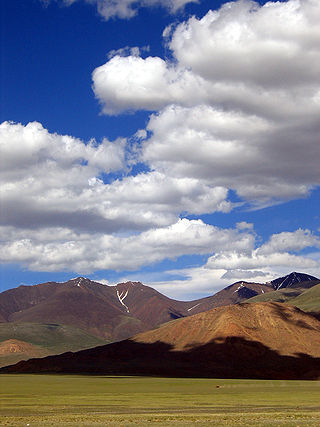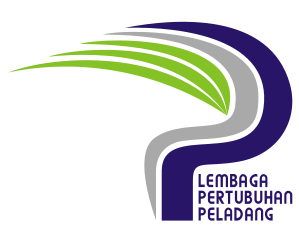Related Research Articles

World Food Day is an international day celebrated every year worldwide on October 16 to commemorate the date of the founding of the United Nations Food and Agriculture Organization in 1945. The day is celebrated widely by many other organizations concerned with hunger and food security, including the World Food Programme, the World Health Organization and the International Fund for Agricultural Development. WFP received the Nobel Prize in Peace for 2020 for their efforts to combat hunger, contribute to peace in conflict areas, and for playing a leading role in stopping the use of hunger in the form of a weapon for war and conflict.

Stephen Masato Wasira is a Tanzanian CCM politician and Member of Parliament for Bunda constituency since 2005. He was the Minister of State in the President's Office for Social Relations and Coordination since 2010.

Agriculture in Mongolia constitutes over 10% of Mongolia's annual gross domestic product and employs one-third of the labor force. However, the high altitude, extreme fluctuation in temperature, long winters, and low precipitation provides limited potential for agricultural development. The growing season is only 95 – 110 days. Because of Mongolia's harsh climate, it is unsuited to most cultivation.

The Ministry of Foreign Affairs is the Netherlands' ministry responsible for foreign relations, foreign policy, international development, international trade, diaspora and matters dealing with the European Union, NATO and the Benelux Union. The ministry was created in 1798, as the Department of Foreign Affairs of the Batavian Republic. In 1876, it became the Ministry of Foreign Affairs.

The Ministry of Consumer Affairs, Food and Public Distribution is a government ministry of India. The ministry is headed by a Cabinet rank minister.

Agriculture in Ghana consists of a variety of agricultural products and is an established economic sector, providing employment on a formal and informal basis. It is represented by the Ministry of Food and Agriculture. Ghana produces a variety of crops in various climatic zones which range from dry savanna to wet forest which run in east–west bands across Ghana. Agricultural crops, including yams, grains, cocoa, oil palms, kola nuts, and timber, form the base of agriculture in Ghana's economy. In 2013 agriculture employed 53.6% of the total labor force in Ghana.
The Ministry of National Food Security & Research or Ministry of Agricultulre (Urdu: وزارتِ برائے قومی تحقیق و حفظانِ تغذیہ ، پاکستان, wazarat-e- baraye qaumi tehqeeq o hfzanِ taghzia, Pakistan is a Cabinet-level ministerial department of Government of Pakistan. It is responsible for implementing, enforcing, developing, and executing policies on agriculture, rice, livestock, fishing, and farming. The ministry is governed by the Minister of National Food Security and Research, who must be a member of Parliament of Pakistan. According to the World Food Programme, "36.9% of [Pakistan's] population faces food security. This is due to limited economic access by the poorest and most vulnerable group of the population – particularly women – to an adequate and diverse diet."
Ghana'sMinistry of Food and Agriculture (MOFA) is the government agency responsible for the development and growth of agriculture in the country. The jurisdiction does not cover the cocoa, coffee, or forestry sectors. The primary organisation and main area of the presidential administration of Ghana is the nation's Ministry of Food and Agriculture (MOFA), which is in charge of creating and carrying out policies and plans for the agricultural sector within the framework of an efficient national socio-economic development and prosperity agenda. The Ministry's plans and programmes are created, coordinated, and put into effect using frameworks for policy and strategy using a sector-wide approach. The Food and Agriculture Sector Development Policy II and the Medium Term Agriculture Sector Investment Plan were both developed with the aid of MOFA in relation to this.

Farmers' Organisation Authority is a Malaysian government statutory body under the Ministry of Agriculture and Food Security.
Crops For the Future, known by its acronym CFF, is an independent international organisation with a mandate to promote and facilitate the greater use of neglected and underutilised crops for enhanced diversification of agricultural systems and human diets, particularly for the benefit of poor people in developing countries. Crops for the Future is the only such organisation exclusively dedicated to an agenda increasingly recognised as important to achieving food security in a sustainable manner and making use of local agricultural biodiversity. Crops for the Future is based in Semenyih, Malaysia, and is governed by a Board of Directors, including a representative of the Government of Malaysia.

The Department of Co-operation, Food and Consumer Protection of state of Tamil Nadu is one of the departments of Government of Tamil Nadu.

Indonesia and Tanzania established diplomatic relations on 25 January 1964. The relations between both nations are mostly in the agriculture sector, where Indonesia provides training for Tanzanian farmers. In 2011 both countries established Indonesia-Tanzania Joint Agriculture Cooperation Committee (JACC), as a vehicle to improve agricultural sector co-operations, such as capacity building through training, joint research, and the expansion of market access to agricultural products. Indonesia has an embassy in Dar es Salaam. Tanzania has a non-resident ambassador in Kuala Lumpur, Malaysia. Since 2023, Tanzania had opened an embassy in Jakarta. Both countries are members of multilateral organisations such as World Trade Organization (WTO), the Group of 77 and Non-Aligned Movement.

Collective farming and communal farming are various types of "agricultural production in which multiple farmers run their holdings as a joint enterprise". There are two broad types of communal farms: agricultural cooperatives, in which member-owners jointly engage in farming activities as a collective; and state farms, which are owned and directly run by a centralized government. The process by which farmland is aggregated is called collectivization. In some countries, there have been both state-run and cooperative-run variants. For example, the Soviet Union had both kolkhozy and sovkhozy.

The Ministry of Land Management, Cooperatives and Poverty Alleviation is a governmental ministry of Nepal responsible for land administration and management activities which ensures efficient and effective administration and sustainable management of available land resources throughout the country. The ministry, then called Ministry of Land Reform and Management, was merged with the Ministry of Co-operatives and Poverty Alleviation to form the Ministry of Agriculture, Land Management and Cooperatives in February 2018, but was reopened and renamed as a separate ministry in August 2018 as the Ministry of Land Management, Cooperatives and Poverty Alleviation.

The Lagos State Ministry of Agriculture and Cooperatives is the state government ministry, charged with the responsibility to plan, devise and implement the state policies on Agriculture and Cooperatives.

The Coordinating Ministry for Economic Affairs is an Indonesian government ministry in charge of planning and policy co-ordination, as well as synchronisation of policies in the field of economics. The ministry is led by a Coordinating Minister for Economics Affairs, which is currently Airlangga Hartarto since 23 October 2019.

Agriculture is the main part of Tanzania's economy. As of 2016, Tanzania had over 44 million hectares of arable land with only 33 percent of this amount in cultivation. Almost 70 percent of the rich population live in rural areas, and almost all of them are involved in the farming sector. Land is a vital asset in ensuring food security, and among the nine main food crops in Tanzania are maize, sorghum, millet, rice, wheat, beans, cassava, potatoes, and bananas. The agricultural industry makes a large contribution to the country's foreign exchange earnings, with more than US$1 billion in earnings from cash crop exports.
Tengeru is a market-town in the Arusha Region of northern Tanzania. Located below Mount Meru on the eastern edge of the eastern branch of the Great Rift Valley, surrounding Lake Duluti, Tengeru has a temperate climate. The town is thirteen kilometres east of the city of Arusha.
The Ministry of Agriculture, Livestock and Fisheries was a former ministry of the Government of Tanzania.